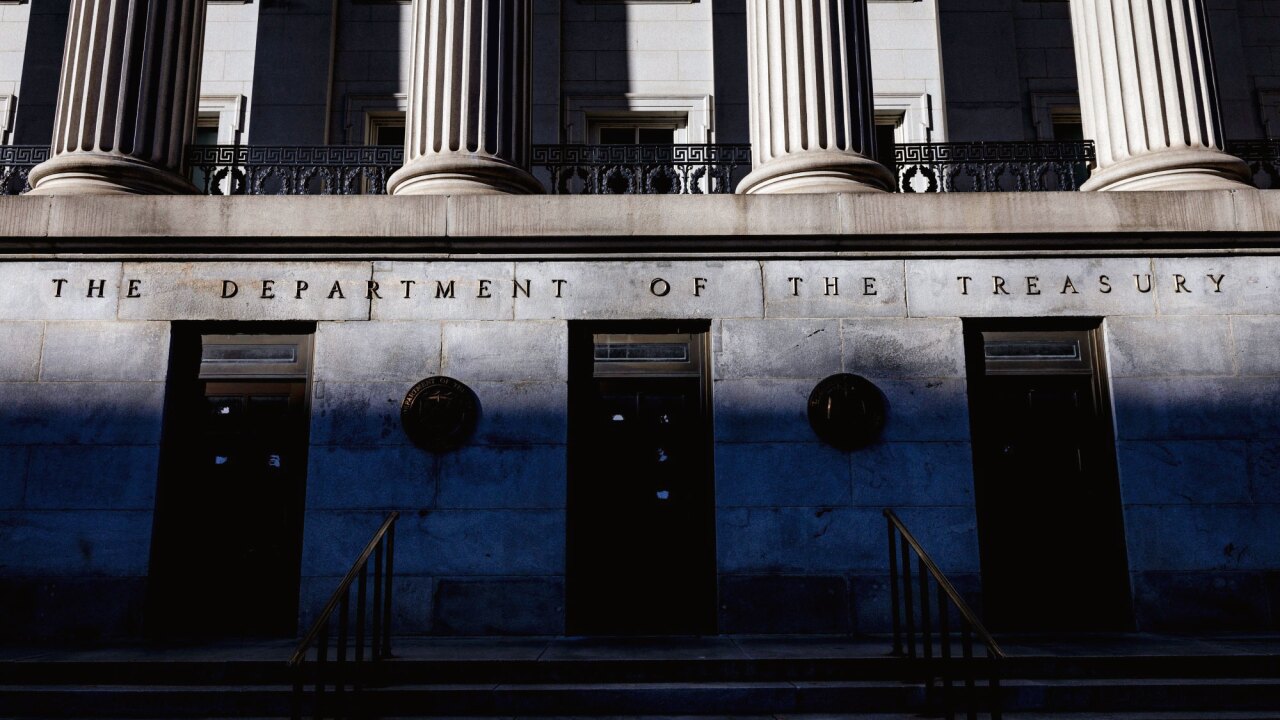Federal Reserve
Federal Reserve
-
Federal Reserve Gov. Michael Barr said tariffs could have an outsize impact on small businesses and hardships could outlive the trade policy debate.
May 15 -
Focus is now on Tuesday's inflation data for any signs of a pickup in price pressures. The report will be the first to show tariff-related costs.
May 13 -
Powell said as policymakers look for more clarity on tariff policies, the risks of higher inflation and unemployment have increased due to President Donald Trump's sweeping levies.
May 12 -
The declines on Thursday pushed two- to 10-year yields higher by at least 10 basis points on the day after President Donald Trump urged people to buy stocks based on the latest trade developments.
May 9 -
Federal Reserve Gov. Michael Barr said global supply chain disruptions and inflation caused by tariffs could weigh heaviest on small businesses, especially those with little access to credit.
May 9 -
With the central bank expected to keep its benchmark rate steady at 4.25%-4.50% on Wednesday, traders will be scrutinizing comments by Fed Chair Jerome Powell.
May 7 -
The pace of hiring drove traders to dial back rate-cut bets that had steadily mounted as Trump's trade war unleashed havoc in financial markets and sowed fears of a US recession.
May 5 -
The labor market continues to cool gradually, a sign that businesses facing heightened uncertainty and turmoil didn't significantly alter their hiring plans.
May 2 -
The selling comes after overseas investors made record purchases of US corporate debt in 2024. Official data shows the demand slowing in February.
May 1 -
The Federal Reserve's preferred inflation reading fell in March, but the positive reading came before new trade policies hit the economy.
April 30 -
As President Donald Trump approaches his 100th day in office, he has generated a growing list of unknowns, forcing traders to focus on a broad array of issues beyond just the likely path of interest rates.
April 28 -
In its latest financial stability report, the Federal Reserve found that asset prices continue to exceed underlying fundamentals and leverage levels remain high, especially by hedge funds.
April 25 -
It marked another day of gains in the $29 trillion Treasury market, which has swung throughout April on President Donald Trump's evolving trade policies and uncertainty about the Fed's path.
April 24 -
Federal Reserve Gov. Adriana Kugler said tighter monetary policy has proved to be less impactful on nonbank lenders during the post-pandemic era.
April 23 -
At the Oval, Trump didn't respond to a follow-up question from a reporter about whether he was trying to remove him.
April 17 -
Investor confidence in US bonds can no longer be taken for granted — not after a years-long borrowing binge, not with a president hell-bent on rewriting the rules at home and abroad and antagonizing many of the country's biggest creditors.
April 11 -
It's bringing back memories of the basis-trade unwinds at the onset of the pandemic — when widespread deleveraging sparked blowups of the popular hedge fund strategy that sent bonds tumbling.
April 8 -
Federal Reserve officials want to see how exactly new trade policies impact the U.S. economy before adjusting interest rates. Markets and monetarists have different ideas about what that might look like.
April 8 -
The central bank wants to let Trump's policies play out across the economy before deciding which way to move interest rates, and it's too soon to know what the impacts will be, the Federal Reserve chair said.
April 4 -
The bid for havens also saw traders boosting bets on Fed interest-rate cuts, fully pricing in a quarter-point move by June.
April 3



















